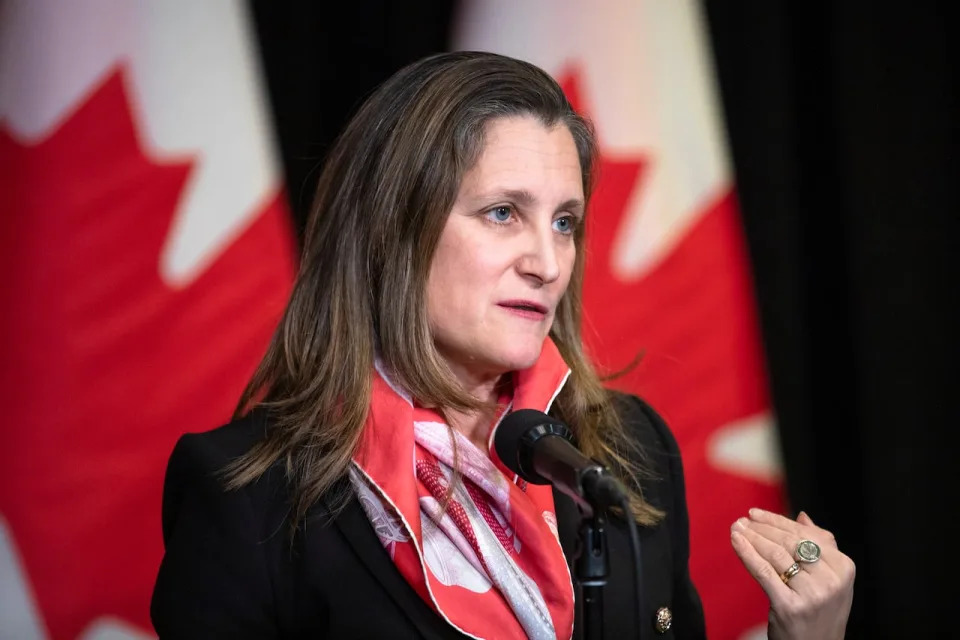CBC
Thu, November 23, 2023

Governments need to bring in programs that will work now, says housing researcher Steve Pomeroy. (Submitted by Steve Pomeroy - image credit)
Canada needs to move more quickly in response to the housing crisis, says housing researcher Steve Pomeroy.
Pomeroy, a senior research fellow for the Centre for Urban Research and Education at Carleton University and a member of the Canadian Housing Evidence Collaborative, was responding to Finance Minister Chrystia Freeland's fall economic statement, in which she laid out measures accelerating housing construction.
"In a crisis you need an immediate, urgent response," said Pomeroy.
He described Freeland's plan as "$15 billion for new construction and another billion for affordable housing, but that money's not going to flow until 2025. And then it takes two or three years at least for units to be built. So they're basically coming up with a solution that creates a solution four years from now for a problem that exists today."
P.E.I. losing cheaper apartments
Pomeroy's research uncovered a massive change in P.E.I.'s rental market from 2011 to 2021.
Combing through census data for affordable rental units, defined as costing under $750 a month, Pomeroy found 3,150 of those apartments disappeared in the decade between the two censuses.
Over that timespan, only 73 affordable units were built.

Minister of Finance and Deputy Prime Minister Chrystia Freeland tabled the 2023-24 federal budget Tuesday.
The federal government is adding money to housing programs that are already working, says Finance Minister Chrystia Freeland. (Nick Iwanyshyn/The Canadian Press)
A quicker solution for people desperate to afford housing, Pomeroy suggested, would be direct assistance.
"If you really wanted to help people in the short term, [add] things like the Canada Housing Benefit, which gives people a few hundred dollars a month to help them manage their rents," he said.
Making a difference 'right away'
In an interview with Island Morning on Wednesday, Freeland rejected the notion that the government is moving too slowly.
"I absolutely understand that housing is an urgent priority on P.E.I.," the federal finance minister said. "The new measures that we announced yesterday are going to make a difference right away."
The new money is for existing programs, she said, programs that are getting housing built on P.E.I. right now, and that increase in supply is essential with the Island's rapidly growing population.
Pomeroy was more positive about an announced plan to crack down on short-term rentals, with the goal of seeing more of those accommodations converted into rented homes.

Airbnb is one of the main services facilitating short-term rentals in the North American market, and one favoured by many Prince Edward Island owners.
Research has found hundreds of short-term rental units in Charlottetown. (CBC)
The initiative would prevent short-term rental owners from claiming expenses on income tax unless they were officially registered and working inside the rules of their municipal jurisdiction.
That would make it less viable for people to work outside of rules such as those that recently came into force in Charlottetown. In addition, a new fund would help cities enforce those rules.
"It could have an effect in some markets," said Pomeroy, and in particular in places like P.E.I.
Researchers at McGill have found short-term rentals in Canada involve a significant number of units that could otherwise be long-term rentals, particularly in tourist areas, Pomeroy said.
In 2019, McGill researchers found 331 short-term rentals in Charlottetown, which at the time would have represented about 5.7 per cent of all units available for rent.
No comments:
Post a Comment